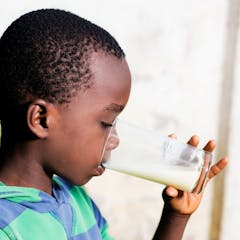
Articles on Childhood stunting
Displaying 1 - 20 of 30 articles

South Africa’s national survey of food and nutrition security identifies the areas most in need.

Financial links between corporations and health research invariably lead to conflicts of interest.

The president’s speech couldn’t cover up for the fact that the last five years have been among the most difficult for ordinary South Africans.

Using simple behavioural science models can help programmes to understand people’s lives and how to design nutrition interventions that directly benefit them.

The inequitable distribution of the benefits and harms of the food system is a violation of the constitutional right to food.

Child malnutrition is no stranger to high-income countries. In Canada and the U.S., food insecurity affects one in six children under 18, but policies to address the issue are still lacking.

Problems caused by malnutrition - such as obesity - are on the rise in South Africa, with serious health consequences.

There is no substance to the view that poor people are lazy and prefer to live on handouts from the state rather than seek work.

Nutrition for kids is key to achieving economic development.

Hunger is not the cause of the current social upheaval. But, taken along with other deep-rooted structural inequalities, it provides additional fuel for socio-political conflagration.

Harsh socio-environmental factors, especially when they happen in the early years of a child’s life, can establish a developmental “biology of misfortune”.

As the global South transitions to a predominantly urban future, food offers a way to understand the role of cities in future development.

Poor nutrition stunts children’s growth and hollows out their life chances.

There is no clear delineation of roles and responsibilities relating to the integration of clean water, sanitation, safe hygiene and nutritional status.

Despite the poverty rate falling, 30.8% of children are still undernourished.

A third of South African children live below the food poverty line. The fact that many caregivers can’t work because of the lockdown will worsen food insecurity. Here’s what needs to be done.

The health and rights of children and adolescents, particularly the most marginalised and vulnerable, are under immediate threat from climate change, corporate actors and growing inequities.

Nigeria has an alarming number of stunted children. This can hold back the country’s long-term productivity if there is no intervention.

South Africa has made significant progress with some of the sustainable development goal targets. But with others its lagging far behind.

There have been a variety of approaches to tackle malnutrition. The continent needs to learn from past mistakes across the world.
